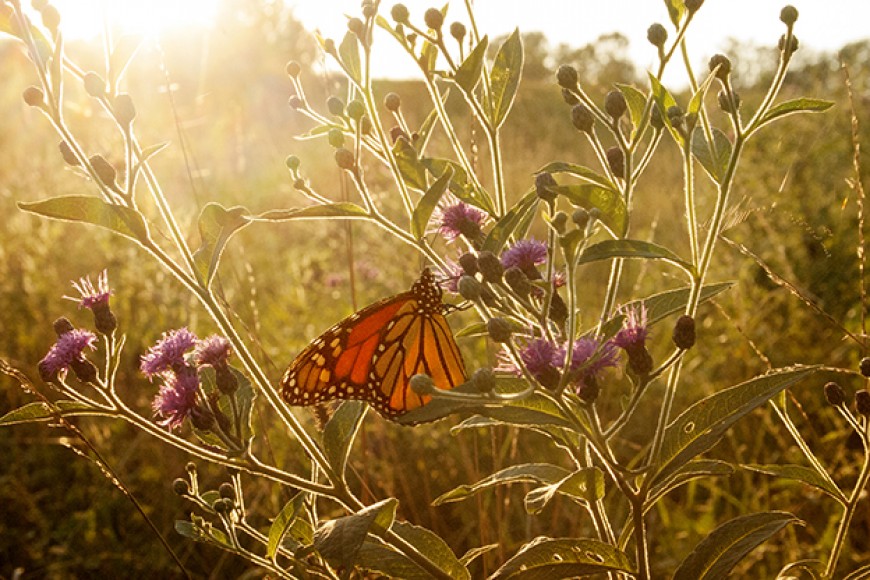
 back to all news
back to all news
Celebrating the work of women environmentalists during Women's History Month

March is Women’s History Month, and what better way to celebrate than by honoring some of the important women working in the environmental movement today.
Here at SEAS, there are many phenomenal women who are making a difference in our world. I took Environ 302: Energy and Environmental Policy Research with Sarah Mills, for instance, and found her to be an impactful, inspiring professor. She teaches at SEAS and the U-M Ford School of Public Policy, and her research focuses on the impact of energy initiatives on rural communities and how the government affects renewable energy development. She leads the Center for Local, State, and Urban Policy’s Energy and Environmental Policy Initiative, where she helps expand the university’s research of renewable energy policy.
Beyond SEAS, women from all walks of life are working to clean our air and water and make our communities more just and equitable. Here are some of the women we are honoring this month.
Winona LaDuke is the executive director and co-founder of Honor the Earth, a Native American environmental organization that focuses on advocating for sustainable practices and the survival of Native communities. She also ran for vice president of the United States in 1996 and 2000 under the Green Party. LaDuke has served a life of advocacy and activist work; she is well-known for her leadership during the Dakota Access Pipeline protests in 2016 and the protests against the Line 3 pipeline in 2020 and 2021. She can be found on Instagram, @winonaladuke, and Twitter, @WinonaLaduke.
Kimberly Wasserman Nieto is a grassroots environmental leader from Little Village on the West Side of Chicago, Illinois. Wasserman has been the executive director of the Little Village Environmental Justice Organization (LVEJO) since 2005. She entered the world of environmental activism after her young son developed asthma from the coal plants in their neighborhood. Wasserman successfully led the lobby campaign to pass the Chicago Clean Power Ordinance and shut down two coal-fired power plants in Chicago, which led her to win the Goldman Environmental Prize in 2013. SEAS graduate Juliana Pino (MS/MPP ’15) is the policy director at LVEJO. Born in Tuluá, Colombia, and raised in both Colombia and the United States, Pino analyzes, researches, and advocates for environmental justice, climate justice, and economic justice in local, state, and federal environmental policy. In 2018, she was named one of Grist’s 50 Fixers for her work in making the world a more just and sustainable place for all. In 2019, she was named an inaugural Rachel’s Network Catalyst Award winner for women of color making an environmental impact in communities across the country.
Isra Hirsi is a 19-year-old American environmental and racial justice activist from Minneapolis, Minnesota. She is the daughter of U.S. Congresswoman Ilhan Omar. Hirsi co-founded and was the co-executive director of the U.S. Youth Climate Strike, one of the largest collaborative climate strikes in U.S. history with over 1,000 strikes coordinated in all 50 states, Puerto Rico, and the District of Columbia. She was awarded the Brower Youth Award and Voice of the Future Award for her work mobilizing the strikes in 2019. The following year, she was included on Fortune’s 40 Under 40 Government and Politics list. She can be found on Instagram, @israhirsi, and on Twitter, @israhirsi.
May Boeve is the executive director of 350.org, an international movement that is fighting climate change. She co-founded the Step It Up 2007 campaign, which initiated a National Day of Climate Action in over 1,400 different communities. She actively protested the Keystone XL pipeline outside the White House and was a leader in the 2014 People’s Climate March. In 2015, Time Magazine profiled her for its Next Generation Leaders series. Boeve can be found on Twitter, @mayboeve.
Rikki Weber, a California native, is a queer Asian-American environmental activist and lawyer. She is a legal practice manager and litigation assistant II with Earthjustice, a nonprofit environmental law firm that serves to protect the planet through the power of the law. Weber created an LGBTQ group at Earthjustice and is on its Diversity, Equity, and Inclusion team. She also started a group with her colleagues at Earthjustice to discuss intersectionality within their work.
Maatalii Okalik is an Inuit political activist whose work highlights how climate change is impacting the Inuit community. From 2015 to 2017, she was the president of Canada’s National Inuit Youth Council, during which she spoke at the 2015 United Nations Climate Change Conference and was awarded the 2017 Indspire Award for Inuit Youth. She was a subject of the National Geographic documentary “The Last Ice,” which documents the stories of Inuits and their unique experiences as the Arctic melts. Okalik also has spoken out about other issues facing Inuit youth, including high suicide rates and the need for better education systems. She can be found on Twitter, @Maatalii.
Dean Jackson is a queer, trans, non-binary farmer who founded Hilltop Urban Gardens (HUG) in Tacoma, Washington, in 2010. HUG is a community-based agriculture organization centered around food injustice and equity. Jackson founded the organization to empower the community and teach others how to grow healthy food. HUG also works to establish food independence as a way to work against systems of economic poverty and oppression. Jackson can be found on Instagram, @qtpocfarmer.
Olivia Juarez is a Latinx Community Organizer at the Southern Utah Wilderness Alliance. They dedicate themselves to educating the community on Hispanic heritage and its connection to Utah’s natural environment. Juarez also advocates for conservation of Utah’s natural resources and public lands, and works to cultivate joy and strength within the Latinx community. Juarez also works with GreenLatinos, Casa Quetzalcoatl, Latino Outdoors, and the Utah Coalition of La Raza. They can be found on Instagram, @rocknolive.

